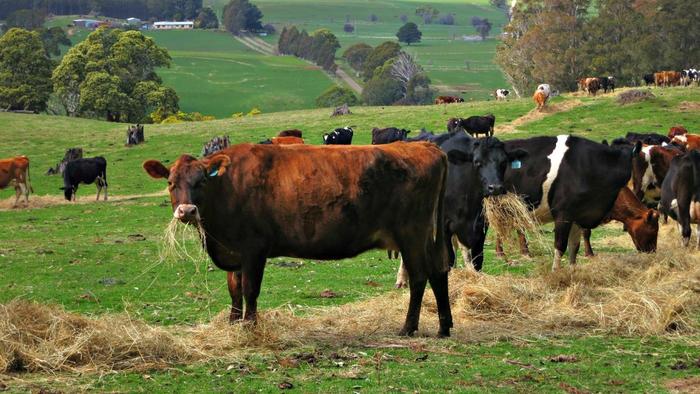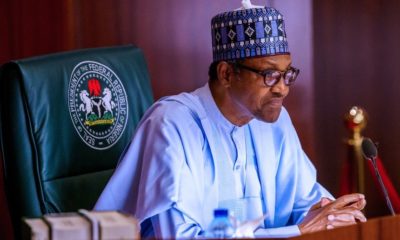President Muhammadu Buhari is opposed to open grazing of cattle, the presidency said yesterday in an apparent effort to douse the rising critique of its statement on Monday, quoting the president as querying the legality of Southern governors’ ban on open grazing.
Presidential spokesman, Mallam Garba Shehu, while fielding questions on ARISE NEWS CHANNEL, said many people misconstrued Buhari’s views on the Southern governors’ resolutions at their May 11 meeting in Asaba, Delta State as an endorsement of open grazing.
Hours before the clarification from the presidency, the Monday statement had drawn flaks from the Southern governors; the Yoruba socio-cultural group, Afenifere; and some senior lawyers.
The presidency statement by Shehu had questioned the legality of the Southern governors’ resolutions, in which they, among others, banned open grazing of cattle in the South.
The statement quoted Buhari as dismissing the ban, while accusing the 17 Southern governors of not proffering any solution to the intractable farmer-herder conflicts, largely driven by open grazing of cattle.
The presidency announced Buhari’s approval for ranching and revival of grazing reserves nationwide.
But the Chairman of the Southern Governors’ Forum and Ondo State Governor, Mr. Rotimi Akeredolu, yesterday fired back at the presidency, warning that no land in the South will be ceded to those he described “as a band of invaders masquerading as herdsmen under any guise.”
The Arewa Consultative Forum (ACF) also maintained its earlier stance that the ban on open grazing was in the best interest of all Nigerians.
But Benue State Governor, Dr. Samuel Ortom, yesterday kicked against the presidential decision to revive grazing reserves, saying that the reserves, created when Nigeria had a population of 50 million have since been taken over by airports, schools, roads, hospitals and other infrastructure.
Some senior lawyers also faulted Buhari’s opposition to the open grazing ban, alleging ethnic bias.
However, in an effort to douse tension generated by his statement, Shehu told ARISE NEWS Channel that Buhari would want to see an end to the archaic practice of open grazing of cattle.
He added that the objective of the president and that of the governors fully align.
However, he stated that the only difference between the positions of both parties is the approach to achieving the aim, adding that the president is insistent that it should be done in an organised manner.
He said: “The president wants to see an end to open grazing; he wants to see ranching; but he wants it in a way that’s organised and he has a plan for it and the plan will take off in June.”
According to him, all the ongoing attacks on the president are from people who are in the mood for a public fight.
He said states that were able to meet the minimum requirements would be encouraged to embark on ranching, and expressed optimism that those opposed to ranching will change their minds when it becomes fully functional.
Shehu said the president viewed open grazing as old-fashioned and was looking forward to a replacement for the medieval practice.
But he reiterated that banning open grazing without an alternative is not a good approach to the issue.
He said the president was worried about the crisis generated by the matter, adding that the generalisation of every herder as criminals is not the right thing to do.
While admitting that the ranks of the nomads had been infiltrated with people now bearing AK-47 rifles to kill and maim, Shehu called for calm as the issue won’t be solved by public show of strength.
“Let us stop this shadow boxing. You just brought one or two people here who said things that nobody said from our own end. Did the president say he didn’t support…? He’s opposed to the way the governors have chosen to do it,” he said.
On state policing, Shehu said the president was initially concerned that governors who are unable to pay salaries to their workers want to give guns to police set up by them, adding that if it is what Nigerians want, the president would have no option but to support it.
“You hire a policeman. Give him a gun and for one year, you don’t pay salaries, like you are doing to your teachers, that’s a problem,” Shehu stated.
Besides, he added that to implement state policing will require amending the 1999 Constitution, and Buhari has never rejected constitution amendments.
On restructuring, he stated that the All Progressives Congress (APC) wasn’t against devolution of power, as that is the work of the legislature to do.
He also dismissed speculations that Buhari was interested in extending his tenure, saying that those raising doubts over whether or not elections will hold in 2023 are doing so because they are unelectable.
Shehu also said he was not aware of any shoot-on-sight order against Igbo, adding that the rumour is meant to provoke unnecessary public anger.

 Education4 weeks ago
Education4 weeks ago
 News3 weeks ago
News3 weeks ago
 Business3 weeks ago
Business3 weeks ago
 Technology3 weeks ago
Technology3 weeks ago
 Investment4 weeks ago
Investment4 weeks ago
 Investment3 weeks ago
Investment3 weeks ago
 Telecommunications4 weeks ago
Telecommunications4 weeks ago
 Banking Sector3 weeks ago
Banking Sector3 weeks ago





























